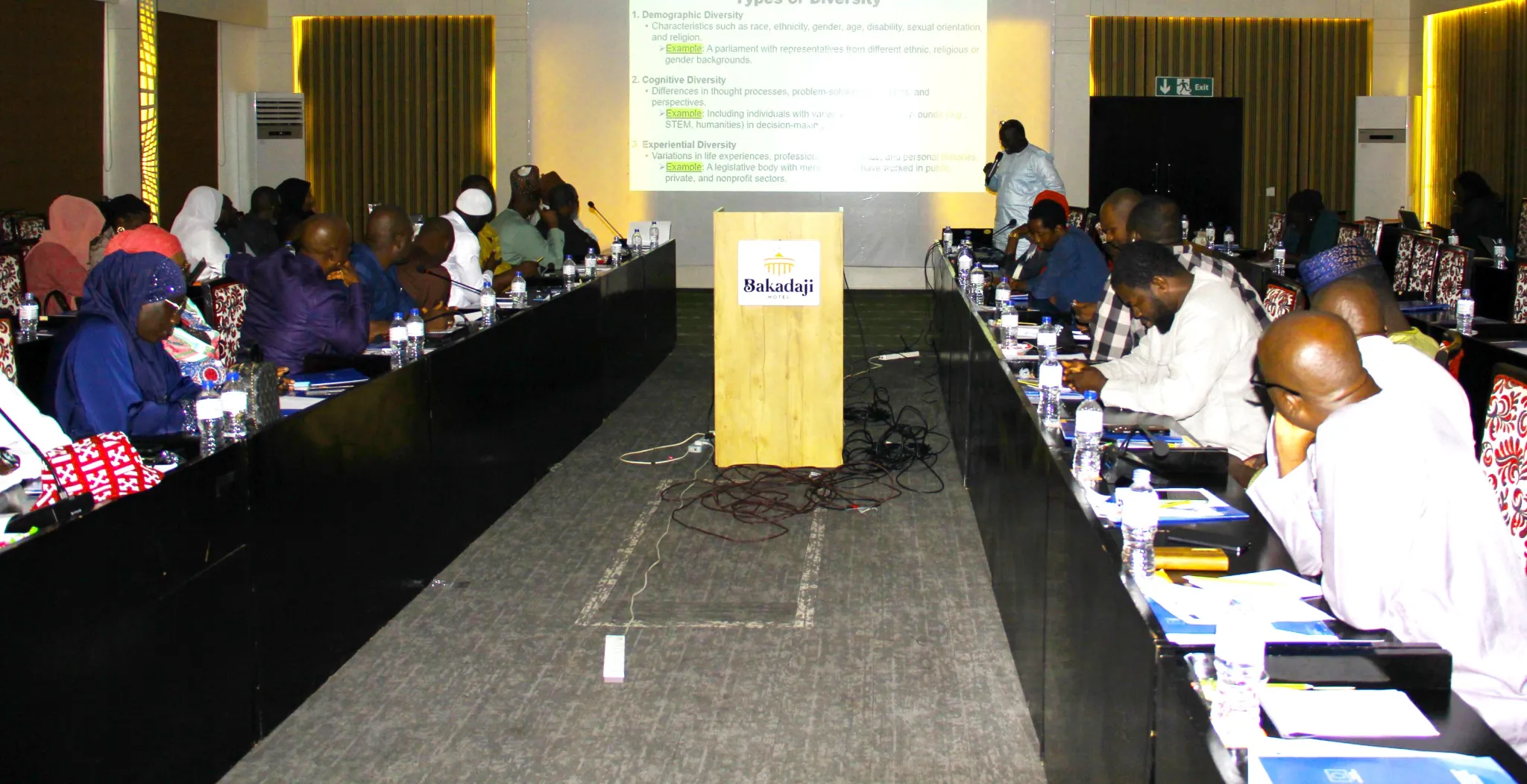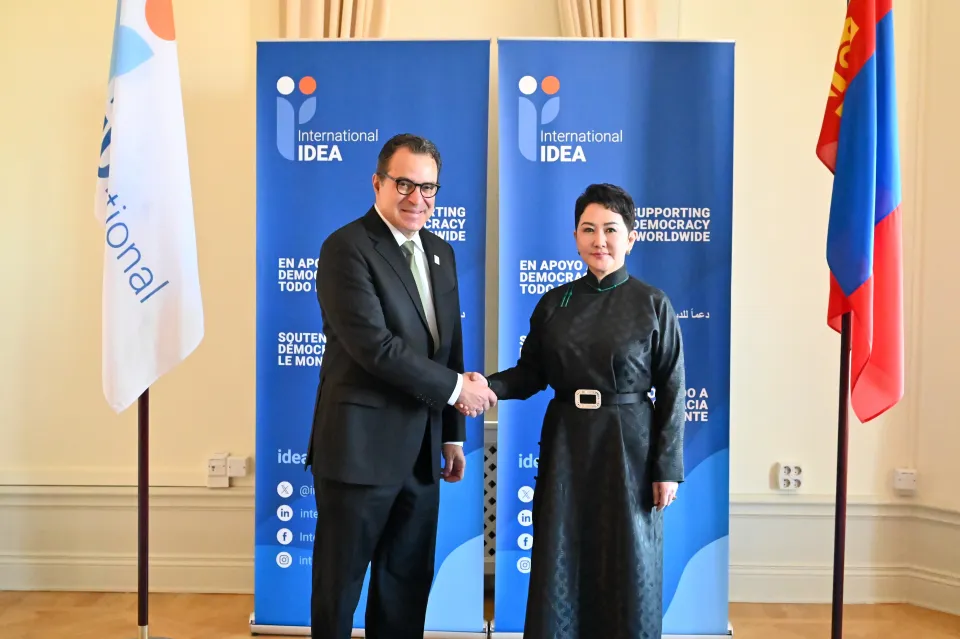National Assembly Members, Staff Trained on Inclusion and Diversity Management

The International Institute for Democracy and Electoral Assistance (International IDEA), in partnership with the National Assembly of The Gambia and with support from the European Union, organised a two-day training on Inclusion and Diversity Management for Members and Staff of the National Assembly. The training was held at the Bakadaji Hotel in Kotu.
Mrs. Jainaba Faye, Head of the Gambia Country Office for International IDEA, recognised the challenges to achieving meaningful inclusion but urged the National Assembly to avoid the risk of tokenism, where diversity and inclusion are superficial.
“As parliamentarians, the transformative role you play in advancing inclusion and diversity is significant. You have the power to shape systems and policies that reflect the realities of all citizens, not just a select few. Inclusion and diversity are not abstract ideals; they are actionable principles that strengthen governance, enhance social cohesion, and build a more resilient nation,” she noted.
Mrs. Faye also emphasized that meaningful inclusion must go beyond symbolism.
“Our work must have purpose. Diversity and inclusion should not be reduced to a tick-box exercise,” she stressed.
Mr. Raphael Brigandi, Deputy Head of Mission at the European Union Delegation to The Gambia, reaffirmed the EU’s commitment to democratic governance, noting that inclusive parliaments are a hallmark of strong democracies.
“Inclusive Parliaments not only produce better laws but also build public trust by ensuring that all voices, especially those of marginalised groups, are heard, respected, and reflected in legislative reforms. Ultimately, it is democracy that grows stronger,” he said.
He added that inclusion is not only a moral imperative but a practical one.
“Embracing diversity helps counter discrimination and promotes social cohesion. More importantly, it invites innovation, creativity, and fresh ideas from across society. In the long run, inclusion benefits not just marginalised groups, but all of us,” he concluded.
The training was officially opened by Hon. Fabakary Tombong Jatta, Speaker of the National Assembly, who underscored the parliament’s commitment to strengthening its institutional capacity and embracing global best practices in governance.
“This training is a testament to our continued efforts to raise the standards of parliamentary work. It is about ensuring that every voice from all regions, ethnicities, genders, age groups, abilities, and socio-economic backgrounds is not only heard but genuinely valued. Only then can we make laws and policies that are just, effective, and truly representative of all Gambians.” He spoke.
The Speaker expressed gratitude to the European Union and International IDEA for their continued support in enhancing the capacity of the National Assembly. He encouraged participants to engage actively and apply the knowledge gained to enrich their legislative responsibilities.




